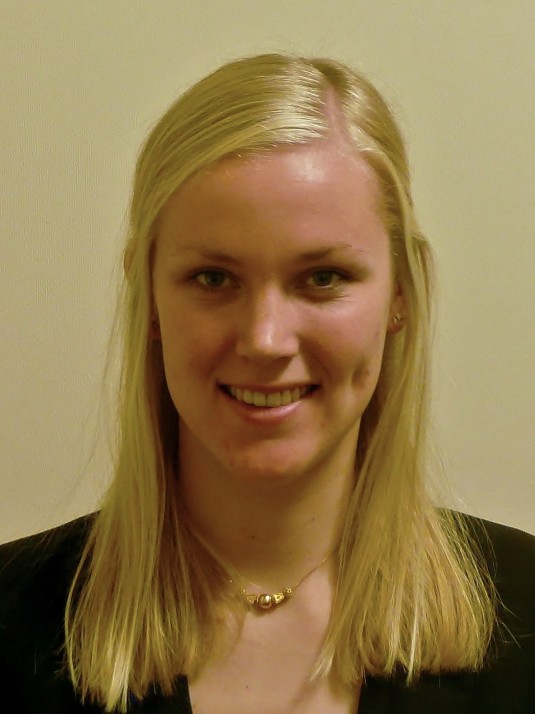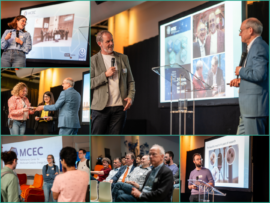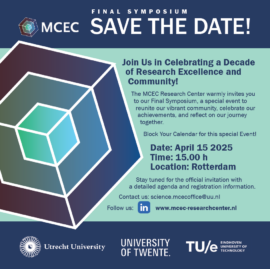In preparation of the MCEC Annual Meeting 2017, PhDs of Twente, Eindhoven and Utrecht have spent a full afternoon (in the first week of April) improving their presentation skills. They exercised with telling their key messages in one minute and then tested their lectures. For each his/her main pitfalls in presenting were identified and improved. The training was led by Frans van Dam of ScienceCom consultancy.
Frans: “During the training, in which we refined the participants’ presenting techniques, I could tell when they felt it ‘click’. Their enthusiasm grew, and with that their eyes started to beam and their posture changed. I’ve enjoyed giving these workshops and I look forward to seeing some of ‘my’ students on the 19th.”
Experiences from participants
 Christa van Oversteeg: “Discussing the aspects of all participants’ presentation – both on content and on the presenting itself – turned out to be very useful. The view everyone had of the audience and their knowledge of my topic, made me look at the content of my presentation in a different way.”
Christa van Oversteeg: “Discussing the aspects of all participants’ presentation – both on content and on the presenting itself – turned out to be very useful. The view everyone had of the audience and their knowledge of my topic, made me look at the content of my presentation in a different way.”
Jochem Wijten, embedded PhD: “One of the most important skills one can have is presentation skills. Whether from a professional or personal perception: the way you present your PowerPoint when applying for funding, or the way you talk in a job interview, influences the way people perceive you. It’s not your résumé that sells, it’s you.
I’m quite aware of this and that’s why I participated in last week’s training. I learned a lot and I thought it was fun. Of course, it’s always a bit confronting to do a presentation, knowing you’re being watched critically and judged. But the trainer was very competent and also a nice, easy going person, so that helped a lot.”
10 April, 2017
Bewaren
 Christa van Oversteeg
Christa van Oversteeg
